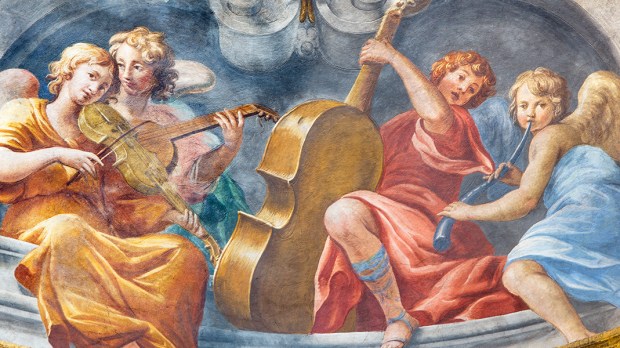Angels are fascinating spiritual creatures. Many Christians have questions about who they are and what impact they have on the world.
Strictly speaking, we do not know much about angels, besides what is revealed in the Bible.
Yet, the Bible does give us a good barometer for sorting through the most common myths about angels.
Here are the top 5 questions Christians ask about angels and their answers. (Detailed answers can be found in the links below).
Question: Should you name your Guardian Angel?
In recent years it has been popular among many Christians to either name your Guardian Angel or pray a novena to discover its name. This devotion often has miraculous stories attached to it, where people claim that they discovered the name of their Guardian Angel.
While the stories appear to confirm the legitimacy of such a practice, the Catholic Church has been very clear about its stance on naming angels.
In the Directory on popular piety the Church proclaims, “The practice of assigning names to the Holy Angels should be discouraged, except in the cases of Gabriel, Raphael and Michael, whose names are contained in Holy Scripture.”
Do we become angels when we die?
In popular culture, it is common to refer to people who have died as “angels” in Heaven. For many, this simply means that they think of the deceased person as being with God, where angels live.
However, sometimes this comforting thought becomes more concrete. Some people believe that humans really do become angels when they die.
Is this true? Can a human person die and then come back to life as an angel? Or does a human being change into a different creature at death?
The short answer is no. There is no possibility of a human becoming an angel.
When we die, our soul is separated from our body for the moment, but will be reunited with it at the end of time. We speak of this in the Creed each Sunday when we say, “I believe in the resurrection of the body.”
To become an angel after death would mean that we become a different being entirely.
Catholics believe that angels are unique, unrepeatable spiritual beings.
Question: Do angels have wings?
To understand the artistic depiction of angels, we must first understand the nature of an angel in the Christian tradition. First of all, the English word “angel” comes from the Latin angelus, meaning “messenger of God.” The Latin stems from Greek ἄγγελος ángelos, which is a translation of the Hebrew mal’ākh, meaning “messenger,” “delegate,” or “ambassador.”
The Catechism of the Catholic Church puts it this way:
St. Augustine says: “‘Angel’ is the name of their office, not of their nature. If you seek the name of their nature, it is ‘spirit’; if you seek the name of their office, it is ‘angel’: from what they are, ‘spirit,’ from what they do, ‘angel.’”
With their whole beings the angels are servants and messengers of God. Because they “always behold the face of my Father who is in heaven” they are the “mighty ones who do his word, hearkening to the voice of his word.”
The word “angel” then simply describes what they do and not what they are. Angels are above all messengers and as we will see when we open up Sacred Scripture, they are messengers of God’s divine plan. (CCC 329)
Angels are pure spirits, meaning that they do not posses a physical body, though at times they can take on the appearance of a human.
The visible form that is often reported in Scripture or popular news stories is a facade, a mask they put on so that we can see them with our eyes. Otherwise they are naturally invisible creatures.
Artists generally use wings as a symbol of the mission of these creatures as messengers.
What does my Guardian Angel look like?
If we are ever graced with an opportunity to notice our Guardian Angel, it is likely that they will appear to us in a form that brings along with it feelings of peace and security.
Our Guardian Angel knows us better than we know ourselves and expertly chooses a form that is specific to us, not wishing to frighten us, but to comfort us in our hour of need.
It is likely we will never see them visibly in this life. But our Christian faith gives us confidence that our Guardian Angel is always at our side, ready to help us when we need him the most.
Do Guardian Angels know our thoughts?
Are they able to enter into our mind and read our secret thoughts? This is a common question.
The short answer is no. They have not been given special access to our thoughts, whereby they force themselves into our mind. Only God is able to know exactly what is going on in our mind, as he is the creator and sustainer of us all.
St. Thomas Aquinas states this clearly in his Summa Theologiae, “What is proper to God does not belong to the angels” (I, 57, 4).
However, while angels are not given unrestricted access to our thoughts, we can reveal to them our thoughts in a spiritual way. Philosopher Peter Kreeft writes in his book Angels and Demons that you can “will to reveal your thoughts and your secrets to your Guardian Angel by talking to him, as you would talk (pray) to a human saint in heaven or a friend on earth.”

